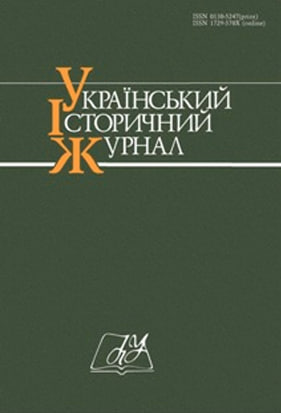Public History as a Component of “Soft Power” in Modern Society: From the Experience of Australia
DOI:
https://doi.org/10.15407/uhj2021.05.165Keywords:
public history, “soft power”, Australia, identity, historical consciousnessAbstract
The purpose of the article is to demonstrate, by the example of Australia, the importance of public history for a state in exerting the “soft power” at the domestic and international political arenas.
The methodology of research is based on the principles of historicism and systemic, also interdisciplinary and comparative approaches. Novelty. Unlike many countries, including Australia, Ukraine still has not reached significant development of the field of public / applied history. Likewise, under-utilized are the resources of “soft power” both within the country and abroad. It’s the first time when the meaning of public history for exercising soft power is explained. Conclusions. At the current stage of global development, competition is gaining a cultural / civilizational dimension, whereof historians are most aware. But prevalently they are stuck in the “ivory tower”, though both the society and the government need their cognitive potential, as deeper knowledge and understanding of the past enhances the quality of decision making for today and for tomorrow. At the same time, any society needs reinforcing its identity, values and cohesion. In both cases, a prominent role belongs to pubic history as part of the “soft power”. The activities of public historians is of great importance for consolidating the society and improving a state’s international image, which brings material and non-material benefits. Within recent years, Australia has risen in the World rating of soft power, entering the top ten of leading countries. Its experience presents undoubted interest to others, particularly Ukraine. This constitutes the practical importance of the results of the survey and outlines the prospects of further studies, envisaging not only purely theoretical theses, but also practical steps in institutionalization, similar to those carried out in Australia: founding the Center for Public History, similar analytical companies, and a respective almanac, where historians and all parties interested could find opportunities for fulfilment, thus amassing the intellectual capital of Ukraine and strengthening its international positioning.


